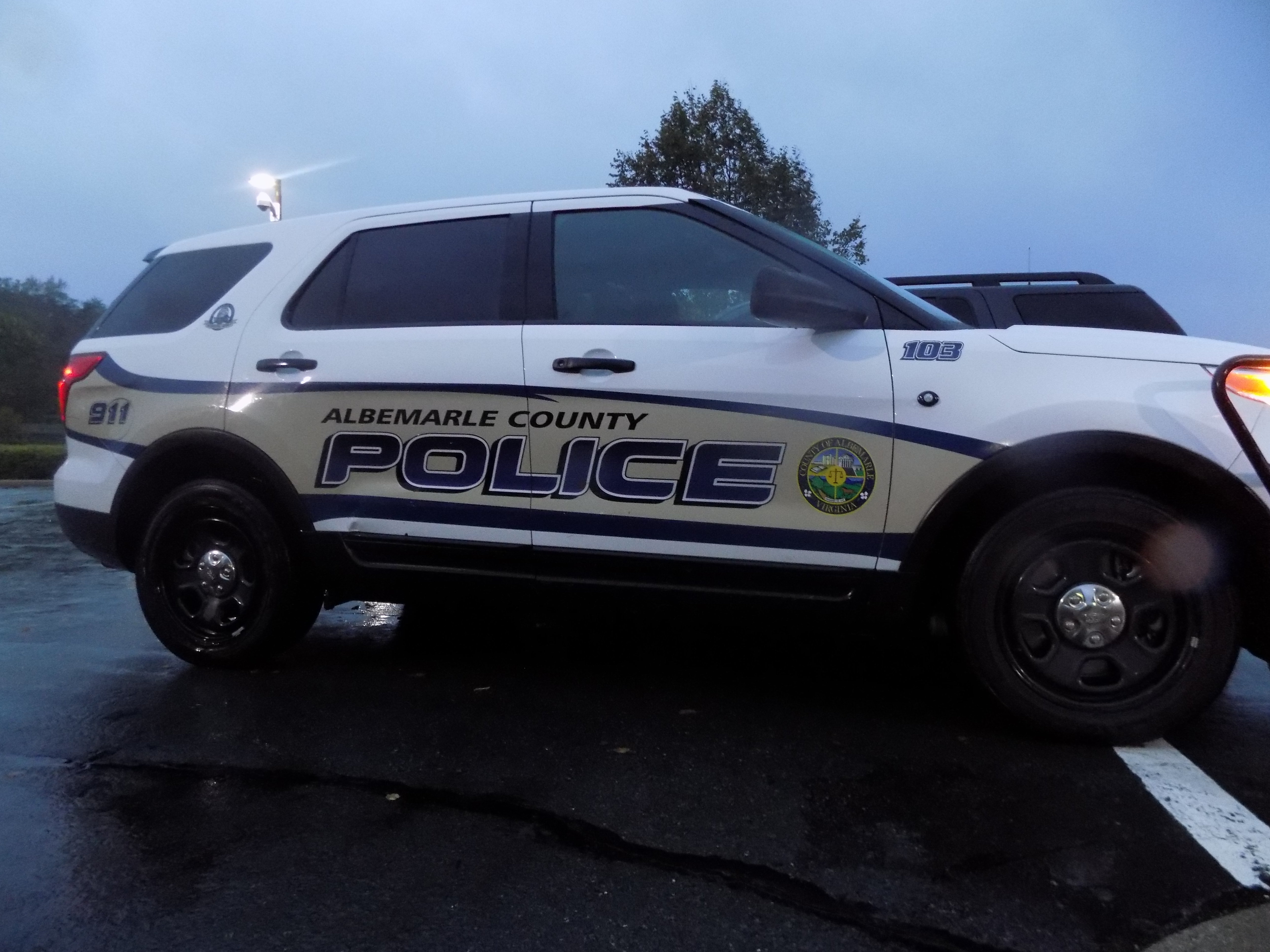
Riding Along with Albemarle County Police
If you are not inspired after spending time with Officer Sheridan, then you are not paying attention.
Officer Sheridan has been a police officer for five years. He started in the Gang and Narcotics Division and then moved into patrolling with the Albemarle County Police Department. But one thing he has not moved away from is his passion for law enforcement. “I find a weakness and strengthen it. I don’t let it be a weakness for long,” Sheridan explained to me during our four hour ride-along. That is only one piece of advice he offered to PVCC students interested in a career within law enforcement.
The day we started our ride-along was on the eve of Hurricane Joaquin. While the skies poured down rain and submerged some Charlottesville parking lots underneath a steady funnel of water, a small fleet of officers was out in force to assist with numerous car accidents. Silence was often broken by the buzzing of the radio, dispatching still other officers to respond to burglar alarms, domestic disputes, or any variety of incidents.
Sheridan has plenty of wisdom to share with PVCC students interested in a career in law enforcement. He says that students should not get trapped into believing that education is all they need to get a foot in the door. The necessary education is only the minimum that a police department looks for. Volunteer work in the community, assisting with the reserve police force, and doing ride-alongs on a regular basis are all good ways to build up your resume. During his time in college, Sheridan would go to bookstores and read case-laws, volunteer to coach sports, and keep up-to-date on trends in law enforcement. When he moved into patrol work, he took extra classes on how to best patrol and took steps to strengthen his writing skills so he could excel. PVCC students can take note of this when they consider the many career avenues that exist within law enforcement.
For instance, those who work the radio to dispatch each call are also an incremental facet of law enforcement. Sheridan explained that dispatchers must multi-task and juggle several different tasks concurrently. For instance, they have to respond to officers’ requests for information while simultaneously receive calls from the public, send out patrol requests, and give directions. That is just one part of the law enforcement team; other avenues PVCC students can pursue include various types of detectives, the FBI, drug enforcement, and more.
One thing Albemarle County has done to promote safety and relationships between the community and officers is utilize geopolicing. Geopolicing breaks the areas police officers work into sectors. Then patrol officers, like Sheridan, patrol their specific sectors. This allows them to build relationships over time with the citizens in their sectors, leading to stronger ties within the community and a better crime-prevention rate.
Police work may be rewarding, but is also dangerous. Contrary to that community spirit at the core of police work is the number of officer deaths. According to the non-profit Officer’s Down Memorial, there have been 98 officer deaths this year. The sacrifices officers make should be acknowledged while considering this profession.
The message is clear: do not become complacent but be passionate if you pursue this (or any) career. At its core, policing is essentially caring for humanity and making a positive mark on the world; apathy ruins that compassion. This is the realization I discovered while talking to Officer Sheridan and witnessing him and his fellow officers work together to help citizens throughout the storm.







